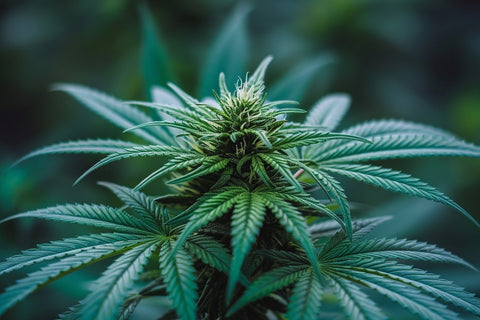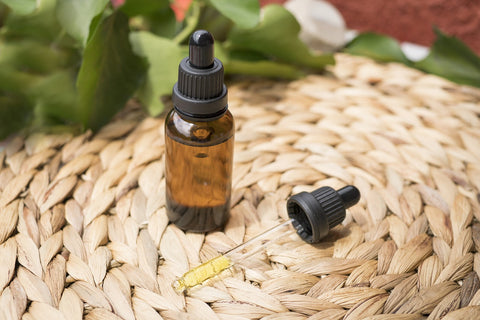Cannabidiol (CBD) oil has grown in popularity for its potential health benefits, ranging from relieving anxiety to aiding in pain management. Particularly intriguing is the expiration, or shelf life, of CBD oil. Understanding if and how CBD oil can expire is essential for ensuring its effectiveness and safety when used as a health supplement.
The dual nature of CBD oil: Natural product meets commercial standards
What makes CBD oil unique
CBD oil comes from the cannabis plant and undergoes extensive processing to create a high-quality product. As a natural extract combined with various carriers like coconut oil or hemp seed oil, CBD oil naturally raises questions regarding its longevity and potency over time.
Expiration date versus shelf life
The terms 'expiration date' and 'shelf life' are often used interchangeably but have slightly different meanings:
- Expiration date: The last day the manufacturer guarantees full potency and safety of the product.
- Shelf life: The duration for which the product remains effective and safe to use, usually indicated by the best-before date.
Factors contributing to the expiration of CBD oil
Exposure to light
One of the main factors affecting the shelf life of CBD oil is exposure to light. Light can degrade the cannabinoids, reducing the oil's overall potency. Storing CBD oil in dark, opaque bottles helps prevent this type of degradation.
Temperature variations
Extreme temperatures can also impact the stability of CBD oil. High temperatures may lead to chemical changes or evaporation of essential compounds, whereas very low temperatures might cause components to separate. It is recommended to store CBD oil in a cool, stable environment.
Oxidation process
Like many natural products, CBD oil can be affected by oxidation, which occurs when the oil is exposed to air. Over time, oxygen can break down the chemical structure of cannabinoids, compromising the oil's efficacy. Properly sealing the bottle after each use minimizes oxidation.
Carrier oils
The type of carrier oil used in CBD products also influences their shelf life. Common carrier oils include MCT oil, olive oil, and hemp seed oil. Each has its own shelf life:
- MCT Oil: Approximately 18-24 months
- Olive Oil: Around 18-24 months
- Hemp Seed Oil: Roughly 14-20 months
Knowing the longevity of the carrier oil can provide insight into the overall durability of your CBD oil.
Signs that CBD oil has gone bad
Change in color
A noticeable change in color could be an indicator that the CBD oil has started to degrade. Fresh CBD oil is typically clear or slightly amber. Discoloration, especially to a darker or cloudy hue, suggests that it may no longer be effective.
Alteration in smell and taste
Fresh CBD oil usually has a mild, earthy aroma, reminiscent of the hemp plant. An off or rancid smell points to possible spoilage. Similarly, a change in taste—becoming bitter or unpleasant—is another sign that the oil has expired.
Texture variation
CBD oil should maintain a consistent texture. If it starts feeling excessively thick, sticky, or shows any signs of separation that cannot be fixed by shaking, it likely means the oil has deteriorated.
Best practices for extending the shelf life of CBD oil
Optimal storage conditions
Storing CBD oil correctly can substantially extend its longevity. Key guidelines include:
- Keep it away from direct sunlight: Store in a dark place or use the original opaque packaging.
- Maintain a stable temperature: Aim for room temperature, avoiding extremes.
- Avoid moisture: Ensure the cap is tightly sealed to block out humidity.
Check packaging for expiration dates
Manufacturers generally include an expiration date on the packaging. Pay attention to this date to ensure you're using the CBD oil within its optimal period of reliability.
Quality matters
High-quality CBD oil tends to have a longer shelf life. Trusted brands invest in better extraction methods and use superior ingredients. When purchasing, prioritize quality to maximize the product’s duration.
The science behind cannabinoid stability
Chemical composition
The complexity of cannabinoids determines their vulnerability to environmental factors. Cannabinoids can degrade into less potent or inactive forms over time. This transformation is accelerated by improper storage conditions.
Role of antioxidants
Antioxidants added to CBD oil can help delay degradation. These substances act by neutralizing free radicals, thereby enhancing the oil's shelf life. Look for products that list antioxidants among their ingredients for added reliability.
Comparing CBD oil with other wellness products
CBD oil vs. essential oils
Both CBD oil and essential oils have shelf lives dependent on their composition. Essential oils like lavender and tea tree can last years if stored correctly, similar to CBD oil. However, CBD oil adds the dimension of carrier oils, making its shelf life a bit more complex.
CBD oil vs. supplements
Dietary supplements, including vitamins and minerals, typically have a long shelf life when kept in ideal conditions. In comparison, CBD oil's longevity is shorter due to its organic components and susceptibility to environmental effects.
When to consider replacing CBD oil
Ineffectiveness
If you notice that the CBD oil isn’t delivering the same effects as before, it could point to reduced potency due to aging. At this stage, replacing the oil becomes crucial to regain its benefits.
Visible and sensory indicators
Any signs of color changes, odd smells, altered taste, or inconsistent texture mean it’s time to replace your CBD oil. Trusting these indicators is key to maintaining both the quality and safety of the product.
The financial aspect of unused CBD oil
Economic implications
Throwing away expired CBD oil can feel akin to discarding money. Hence, properly managing your stock through correct storage and regular usage ensures you get maximum value. Purchase CBD oil in quantities you expect to use within its reliable shelf life.
Sustainability considerations
Wasting products not only impacts your wallet but also the environment. By prolonging the shelf life of your CBD oil through proper care, you contribute to reducing waste and promoting sustainability.



